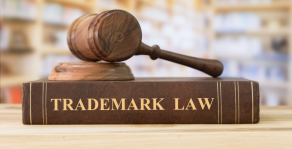|
Digital dithering by the UK
Government shortly before it called a General Election has left
ambitious businesses, keen to exploit next-generation technologies, well
and truly disconnected. If not commercially stranded.
In a classic U-turn, the Westminster political powers-that-be pulled
talks aimed at achieving a first-time industry led agreement on an
intellectual property rights code of practice.
IPR represents the very DNA of an enterprise as organisations seek ways
to protect precious data and other assets whilst attempting to embrace
digital advances on offer.
The World Intellectual Property Organisation (WIPO) describes IPR as
"the fruits of an enterprise's creative and innovative talents..key
towards success as basis towards enhancing a company's value."
 One
senior Scots business executive, who asked not to be named, summed up:
"At a time when we all desperately need reassurance, in the face of the
largely as yet unknown commercial effects of AI, to pull the rug away
from these key talks is unforgiveable." Expect more expert IT
outsourcing by organisations seeking to exploit such potentially
transformative smart tech. One
senior Scots business executive, who asked not to be named, summed up:
"At a time when we all desperately need reassurance, in the face of the
largely as yet unknown commercial effects of AI, to pull the rug away
from these key talks is unforgiveable." Expect more expert IT
outsourcing by organisations seeking to exploit such potentially
transformative smart tech.
Such uncertainty comes legal experts warn the marketplace will suffer as
a consequence as increasing numbers of content creators are forced to
fight in the courts to enforce their IP rights, especially in the face
of unfettered and powerful generative artificially intelligent tools.
The Economist warned some months ago of a "battle royal" brewing over
copyright and AI, as Big Tech pushes such software products jam packed
full of aggressive (ro)bot web crawlers ever-threatening to ride
roughshod over IP law.

The IPR talks collapse
marks a setback in the UK's lofty ambitions to be a global superpower on
the artificial intelligence front.
An over-ambitious stance some hoped, nevertheless, would strike a
balance between developers' desire to access quality data to train AI
models, and content creators' right to control and commercialise access
to their copyrighted works.
Burness Paull, Scotland's top IP disputes experts for the fifth year in
a row, identifies "contentious" areas it manages include an ongoing
spread of patent, trade mark, copyright, design right, confidential data
and arts and entertainment.
Generally IP involves "tangible" assets including buildings, machinery
equipment and office supplies, "intangible" represents the physical
existence and fruits of a company's creative and innovative talents.
Pinsent Masons senior practice development lawyer Gill Dennis said: "The
government's current focus on achieving greater transparency, rather
than on limitations on the use of copyright works, is unlikely to
comfort content creators."
Instead of such an openness, its stance has muddied the field of
intellectual property and confirmed some have already expressed a
willingness to enforce their IP rights against AI developers through
legal moves.
In turn, businesses face litigation as AI tools become more popular.
They should consider different kinds of risks associated with the
advanced technology infringing IPR especially when it involves personal
data.
Kathy Berry, TMT/IP counsel at Linklaters, described the talks breakdown
as a blow to both AI developers and content creators alike, adding a
call to action is required to strike "a better balance of interests."
.jpg) Under
the current legal framework developers are not legally able to copy
third-party copyright works in the UK for the purpose of training their
AI models, save in very limited circumstances. Under
the current legal framework developers are not legally able to copy
third-party copyright works in the UK for the purpose of training their
AI models, save in very limited circumstances.
Similarly, content creators have limited ability to monitor and police
use of their work by developers. End product is double confusion when
what is urgently required is a dose of clarity.
The talks were halted despite a "call for action" from the House of
Lords communications and digital committee to the lower house.
Representing a short window to steer the UK towards a resumption and
positive outcome to talks.
Such assets are legally protected and that protection can be enforced in
a court of law, independently identified, transferable and having an
economic lifespan.
Different legal instruments exist by which an outfit may achieve IP
protection and the WIPO stresses an organisation should conduct an IP
valuation and get on board expert help if required.
Having an idea of how much assets may be worth will be helpful for
various transactions including licensing, sale, donation of IP rights or
entering into joint ventures and other collaborative arrangements.
The government has also been reminded it has a "duty of care" on the
issue. In turn it stated, rather cryptically, it was considering other
IPR/AI options adding it will get back to the stakeholders involved.
The next government better not hang around. Otherwise it faces the
likely prospect of a barrage of angry IP content creators and bruised
businesses raising AI copyright concerns in the courts. |

